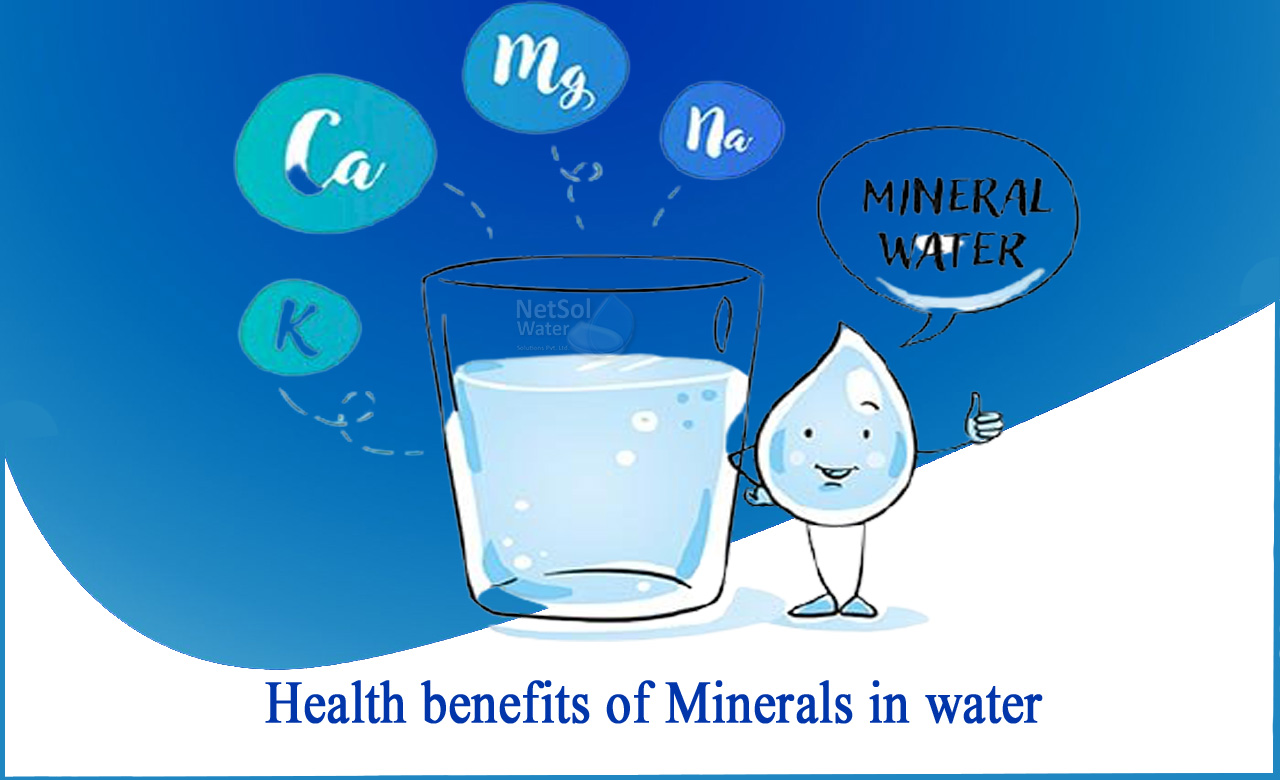All living things need water to stay alive, and one of the main ways we put water in our bodies is to drink it!
There are several types of drinking water, which may not be distinguishable by taste. These include:
1- Tap water
2- Electrolyte water
3- Purified water
4- Distilled or deionized water
5- Alkaline water
6- Mineral water or spring water
Mineral water is generally found in natural water bodies. Mineral water can also be made artificially by adding salt to distilled water or exposing it to carbon dioxide to increase carbonation. However, mineral water is naturally carbonated to varying degrees. Natural and artificial mineral waters vary widely in nutritional value, but are usually high in minerals such as:
1- Calcium Carbonate
2- Magnesium Sulphate
3- Potassium
4- Sodium Sulphate
The following gases may also be included:
1- Carbon Dioxide
2- Hydrogen Sulphide
Health Benefits
Due to its carbonate and mineral content, minerals in water is known to offer several health benefits, including:
Contribution to Heart Health:
In one study, postmenopausal women drank 1 litre of mineral water twice daily, each month. The results showed that ingestion of mineral water lowered bad (LDL) cholesterol levels and increased good (HDL) cholesterol levels. High cholesterol increases the risk of heart disease and other illnesses, so water full of minerals helps keep the heart healthy and functioning properly.
Lower Blood Pressure:
In a 2004 study, researchers investigated the effects of mineral water on all people with borderline high blood pressure (hypertension) and low levels of calcium and magnesium. After drinking mineral water for four weeks, they noticed a significant drop in blood pressure in these people.
Relieves the symptoms of constipation:
In people with indigestion (dyspepsia) and constipation, mineral water can relieve constipation and significantly improve the symptoms. As an additional benefit, it can also improve gallbladder function.
Health Risks of consuming mineral water in bottles
Drinking mineral water does not pose any health risks in itself, but drinking from a plastic bottle can pose certain risks.
Micro plastic Consumption:Bottled water contains a large amount of microplastic, which is a small piece of plastic. Most of the bottled water comes in bottles made of polyethylene terephthalate (PET), also known as #1 plastic. Studies have shown that PET can act as an endocrine disruptor that alters the endocrine system.
Another type of plastic commonly used for bottling water is plastic #7, which contains bisphenol A, commonly known as BPA. Many countries ban this substance because of its toxicity. Exposure to BPA is related to:
1- Infertility Problems
2- Brain Development Problems
3- Cancer
4- Heart Problems
BPA is another plastic, especially at high temperatures or when bottles are stored for long periods of time may also be released.
Stomach nausea: If the selected mineral water is highly carbonated, carbonated bubbles can lead to gastric nausea. People with gastroesophageal reflux disease (GERD) should consider avoiding carbonated drinks as a lifestyle change to avoid exacerbation of their symptoms.
Water Intoxication: Drinking water is recommended as a healthy lifestyle, but unlikely, it can be over drinking. Drinking plenty of water quickly can dilute the amount of sodium in your body. Sodium is an electrolyte that helps regulate the water content in cells, and too much water can cause imbalance and cause what is called hyponatremia. Although rare, water intoxication can cause coma and seizures, which can be fatal.
Dosage: According to the US Food and Drug Administration, water must contain 1,500 milligrams of dissolved minerals per litre to be labelled as mineral water. However, in Europe, all mineralized water is considered mineral water. There is no recommended daily amount as the mineral content varies greatly depending on the type of mineral water.
No doubt we should drink water containing minerals, but using plastic water bottles is a bad choice!




